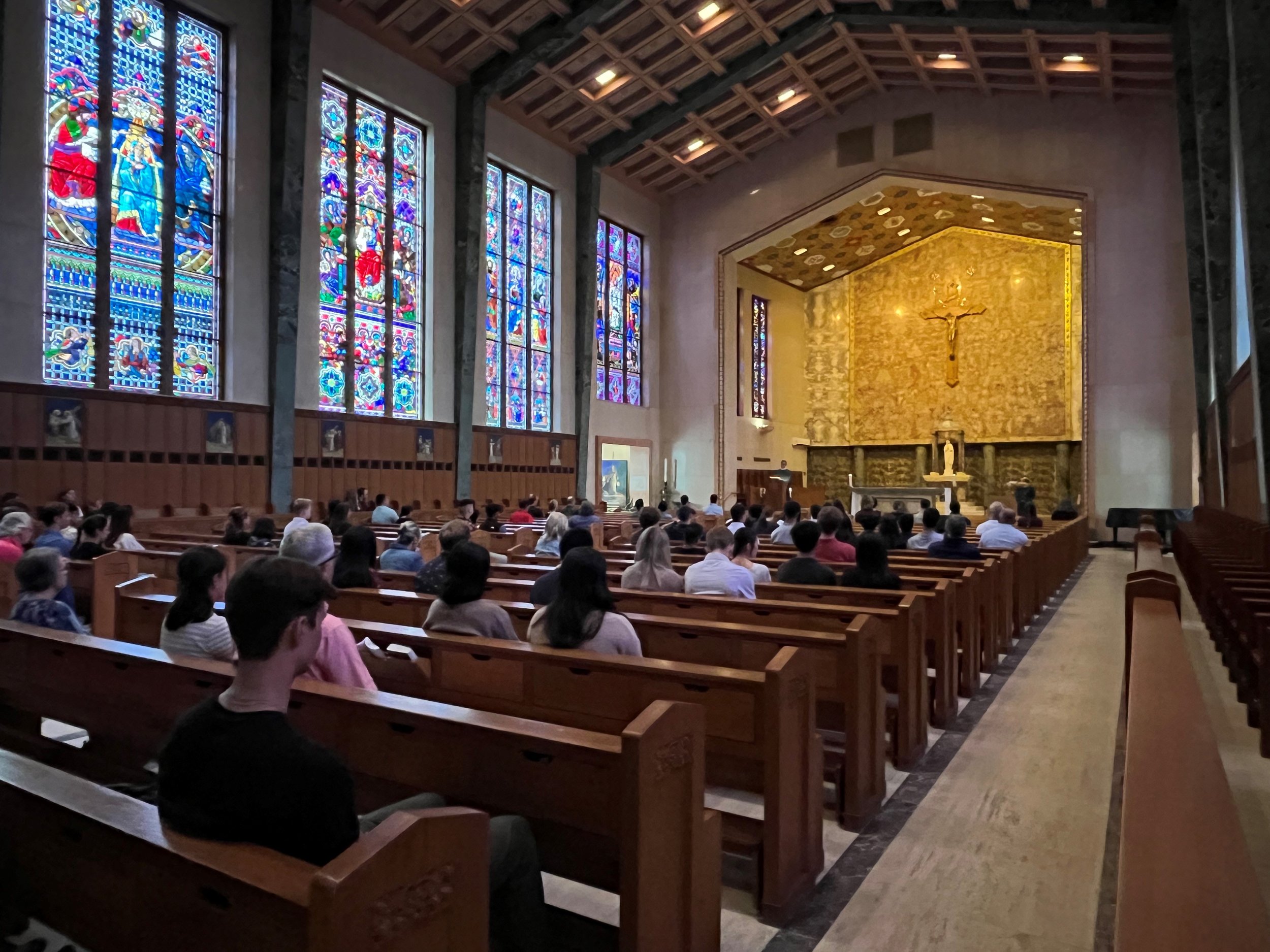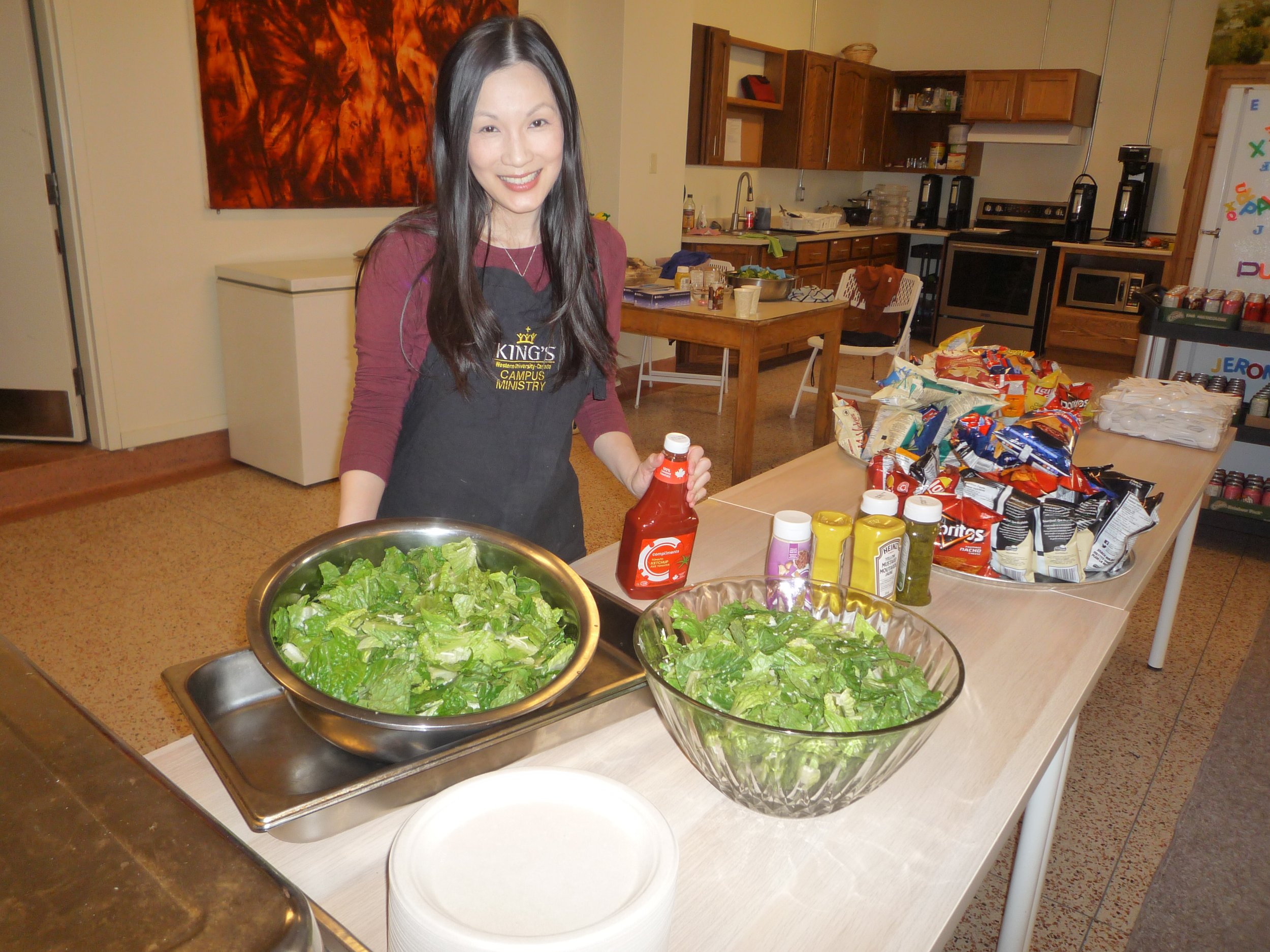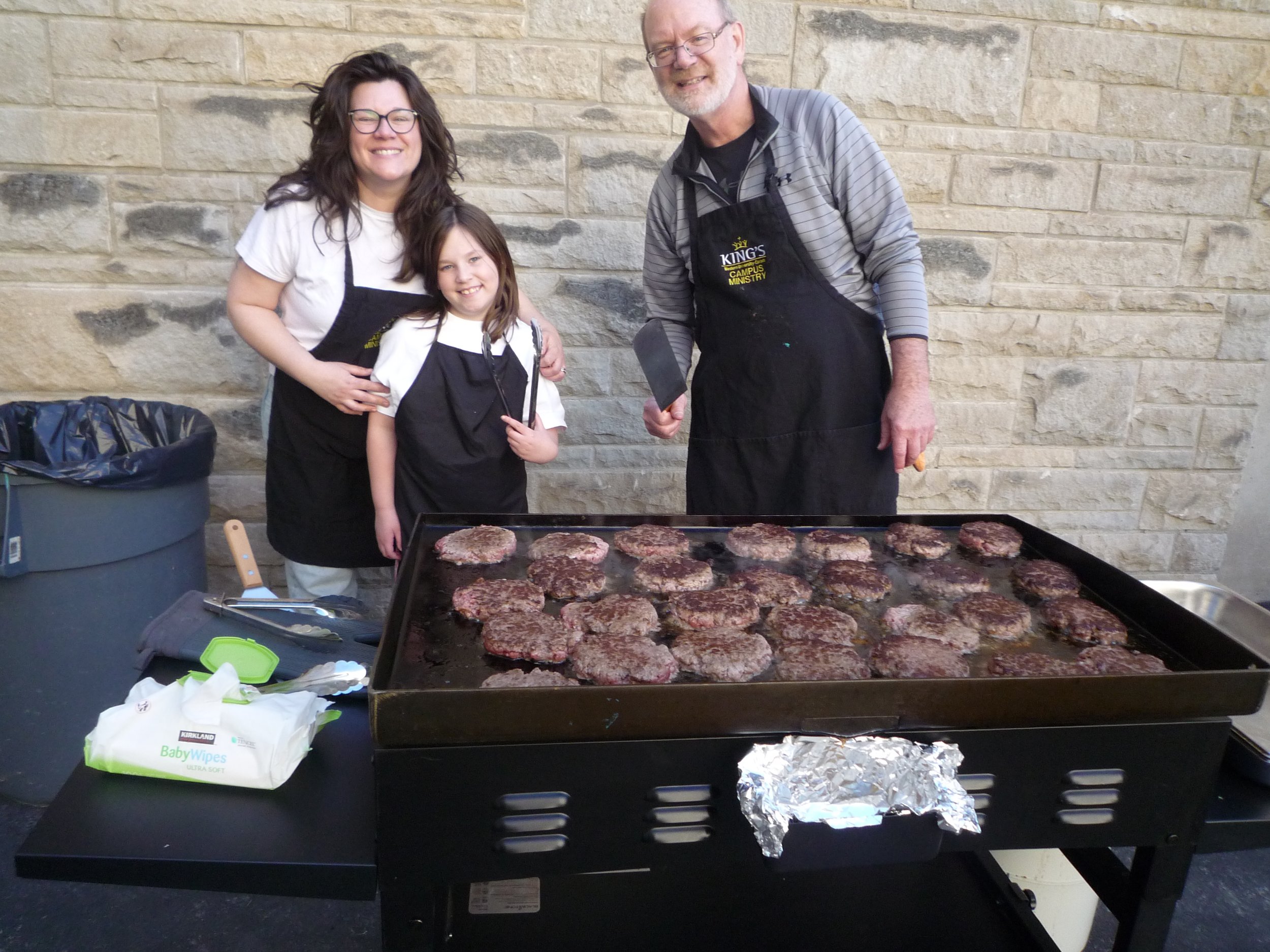It was late Sunday afternoon when I learned that King’s University Parish offered a 5:00 pm Mass for its students. Pressed for time, I quickly drove to the main campus and hurried into the small chapel. There in silence sat only a young couple expecting to attend Mass. No candles were lit, no presider was present. Soon, the young man consulted his phone and announced that Mass was at the nearby spacious King’s College Chapel – formerly our community’s Mount St. Joseph chapel.
As I sped down Huron Street, I wondered why a five-o’clock Sunday Mass would be held in such a large space for a few students. Several minutes later I parked the car, raced up the wide cement steps and entered the foyer. Now, out of breath, I hurried across the marble floor and gingerly opened the chapel door. I stopped in my tracks as I beheld the pews filled with young students raising their voices and praising God to the organ strains of a timely Lenten hymn.
I couldn’t believe my eyes and ears! A sense of quiet awe permeated the atmosphere as young men and women of many colors and races worshiped in faith and solidarity as their chaplain, assisted by the college deacon, led the beautiful celebration of the Eucharist. I felt a solemnity and beauty that transcended the ordinary.
Voices in my head reminded me of what I often thought and what many others believe: “Young people don’t go to church anymore”. “Few practice their faith these days”. “What is our world coming to”?
Wait a minute, I thought, how could we have been so wrong? Here I was among a devout crowd in line to receive communion singing the haunting words, “Eat this bread, drink this cup, come to me and never be hungry”. Here they received sustenance and strength at a weekly Sunday Service.
Following the ceremony, the feeling of fellowship that had begun at Mass continued as a large group made their way downstairs to an inviting room where coffee, crusty buns, and four kinds of soup were served from hot urns by student volunteers. Sitting around white tables, fellowship and friendly chatter filled the room. It was all so simple, heartfelt, and real.
Even as the academic year draws to a close and students head out of town, a considerable number will continue to attend Sunday Service. Come September, the chapel will be filled again with devout students. Now I know that faith is alive and active in students at King’s University College, and in many other places as well.
-Sister Jean Moylan, csj













